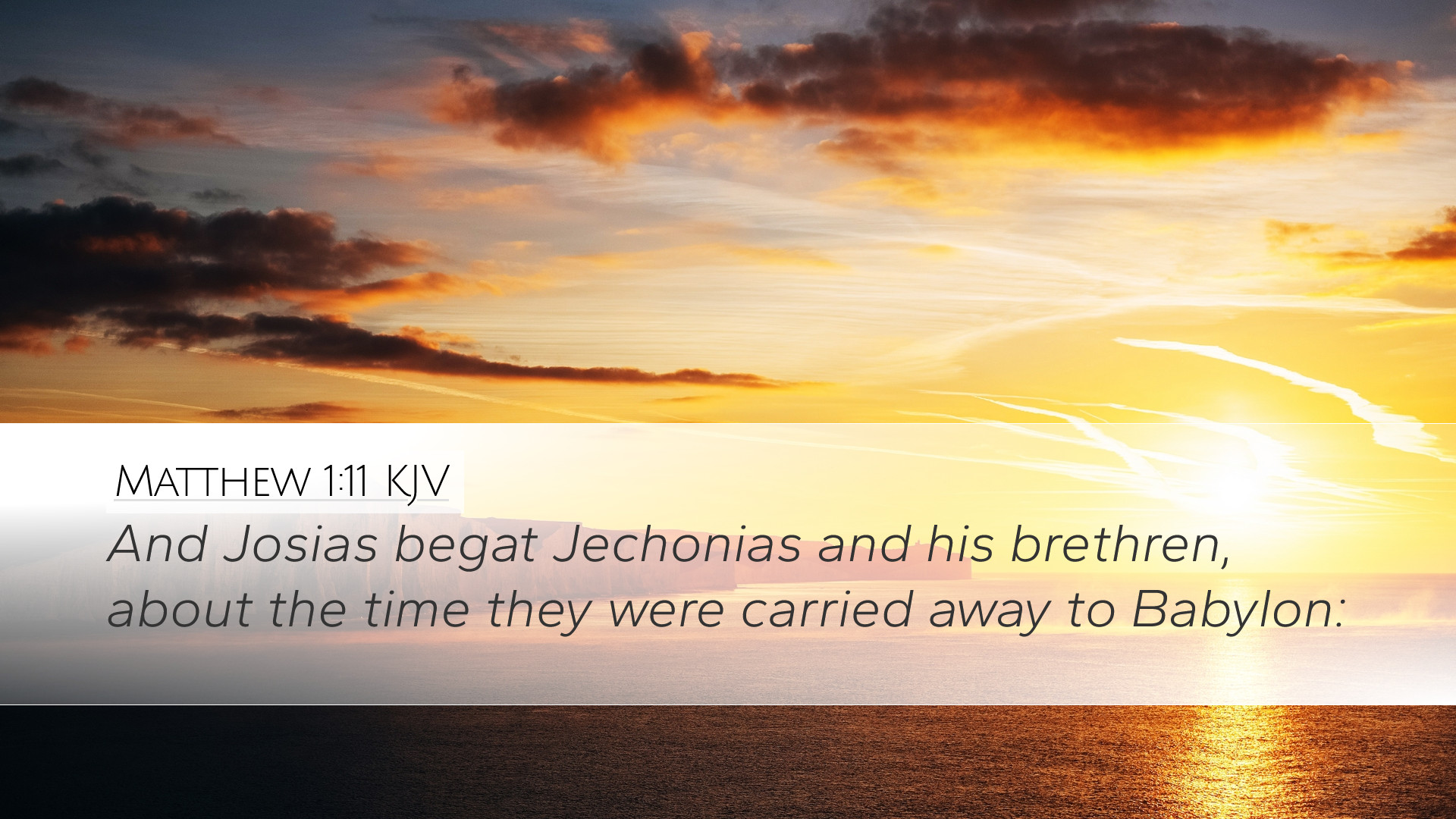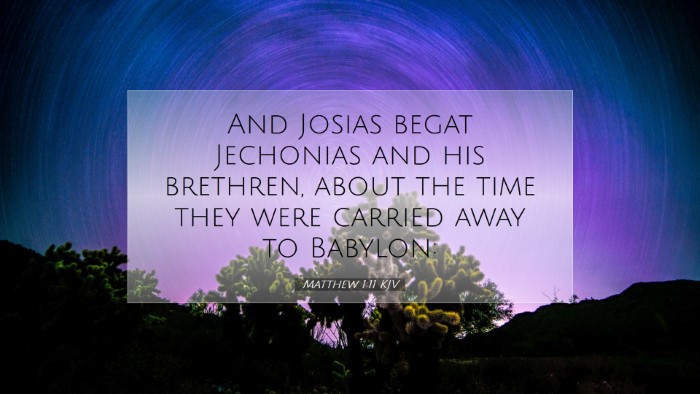Commentary on Matthew 1:11
Introduction
The genealogy presented in Matthew 1:11 is an intricate tapestry that reveals not only the lineage of Jesus Christ but also the theological implications of His coming. Matthew's genealogy includes various figures, extending from Abraham to David, and highlights the prominence of King David in the lineage. This commentary synthesizes insights from notable public domain scholars such as Matthew Henry, Albert Barnes, and Adam Clarke.
Understanding the Context
This particular verse lists Jeconiah, also known as Jehoiachin, as a significant figure in the lineage of Christ. Understanding Jeconiah's role in biblical history is critical to grasping the depth of this genealogy.
- Historical Background: Jeconiah was the penultimate king of Judah before the Babylonian exile. His reign lasted only three months, during which he faced the overwhelming might of the Babylonian forces.
- Theological Implications: His inclusion in the genealogy emphasizes both the continuity of God's promises to His people and the redemptive plan of God through a lineage that includes flawed humanity.
Insights from Matthew Henry
Matthew Henry notes that the genealogy serves to establish Jesus’ legal claim to the throne of David. He highlights the importance of acknowledging God’s providence in the historical circumstances leading to the formation of this lineage. Henry emphasizes:
- The divine sovereignty evident throughout the genealogy, indicating that Jesus' birth was not merely a historical event but a fulfillment of God’s promises.
- The reference to Jeconiah signifies not just a historical figure but also speaks of the curse placed upon his line, showcasing the grace that allows for restoration through Christ.
Insights from Albert Barnes
Albert Barnes focuses on the details concerning Jeconiah and the significance of his role in the genealogy. He explains:
- Jeconiah’s reign and subsequent captivity illustrate the consequences of disobedience and sin in Israel’s history.
- The broken line of kings after Jeconiah points to the need for a true king, which Jesus fulfills, marking the contrast between earthly kings and the eternal reign of Christ.
Barnes also notes the broader implications of this genealogy, asserting that Matthew’s account is structured to signify Christ as the "Son of David," fulfilling the messianic prophecies linked to David’s throne.
Insights from Adam Clarke
Adam Clarke provides a detailed examination of the names in the genealogy, particularly the figure of Jeconiah. He elaborates on:
- The role of Jeconiah as a symbol of the struggling remnant of Israel, illustrating how even in captivity, God preserves a lineage for His purposes.
- The doctrinal importance of including Jeconiah, pointing out that Jesus was born of Mary, who was not from the cursed line of Jeconiah but instead provided a way for Him to be both fully human and divinely appointed as the Messiah.
Clarke also emphasizes that the genealogy does not just catalog names but connects the dots of God’s history with humanity, leading to the ultimate revelation in Christ.
Conclusion
The examination of Matthew 1:11 through the lenses of these scholars reveals a rich tapestry of theological significance and historical context. The inclusion of Jeconiah highlights God's redemptive plan, intertwined with themes of grace, restoration, and the powerful acknowledgment of a kingdom that transcends earthly limitations.
This verse serves as a reminder that the lineage of Christ is one marked by divine providence, demonstrating that God can use even those who have been broken or have fallen short in His greater narrative of redemption. For pastors, students, and theologians, the insights gleaned from the genealogical record can inspire deeper reflections on God’s sovereignty and transformative power within the church today.


